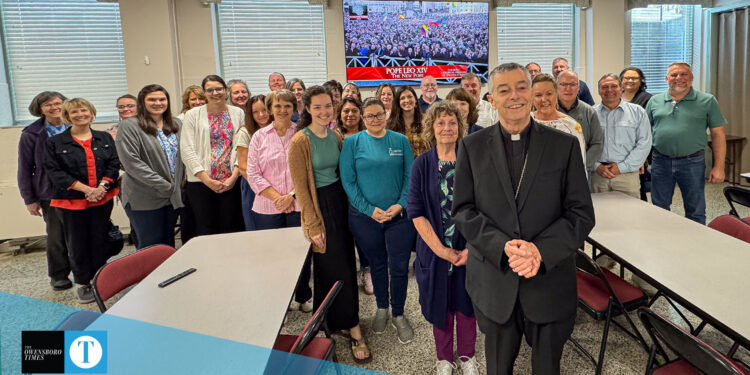As part of a campaign dedicated to raising colorectal cancer awareness, the Incredible Colon exhibit traverses across Kentucky during February and March, and its first stop of the trip took place at Owensboro Health Regional Hospital on Wednesday.
The exhibit is hard to miss, featuring a 20-foot, inflatable colon replica that shows those walking through it the various types of tissue and problems that can arise in one’s colon.
The event is free to the public and helps promote colorectal cancer screening, made possible through a partnership between Owensboro Health and the Kentucky Cancer Program, with additional help from the Kentucky Department of Public Health.
KCP Cancer Control Specialist Jaime Rafferty said she goes to eight different locations across western Kentucky.
“There’s some taboo to it — nobody wants to talk about ‘that area,’” said Diana Smith, a registered nurse with Owensboro Health. “I think this just de-stigmatizes that whole region. You can’t ignore this, so don’t ignore yours either.”
With a goal of 21 people signed up to take home a take-home colon testing kit, provided by KCP, Owensboro Health had already hit that mark with three hours left to go.
“They can mail in the results to see if there’s blood in their stool,” Rafferty said. “Not everybody will want to do a colonoscopy, but sometimes people don’t mind to do that step first to remove that fear barrier.”
The American Cancer Society has now reduced the age down to 45 to start screening. The recommended screening date was previously 50.
KCP says colon cancer is highly treatable. When found in its earliest stages, the five-year survival rate is 90 percent. 90 percent of cases are found in people 50 or older. However, colon cancer is on the rise for those under 50.
Health experts recommend getting screened regularly to prevent most colorectal cancers. Screening helps providers find and remove polyp growths that can become cancerous.
“Now insurance companies are playing catch-up because we’re getting people screened earlier,” Rafferty said. “We always say, ‘Just call in advance to see if it’ll be covered.’ And, a lot of times, it can be.”



